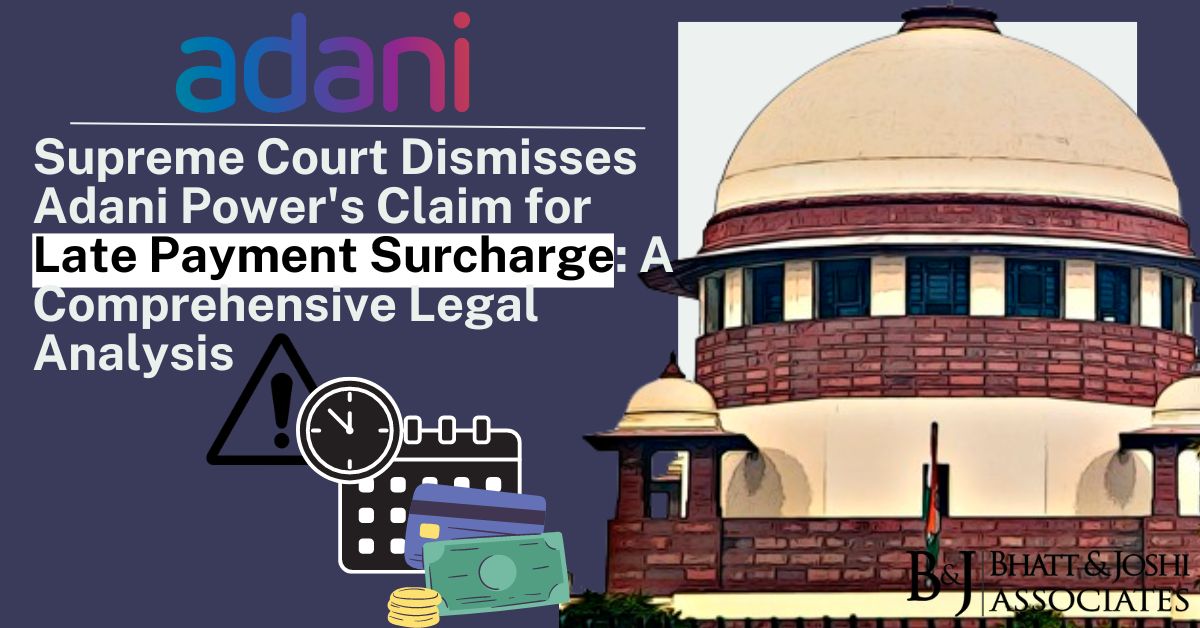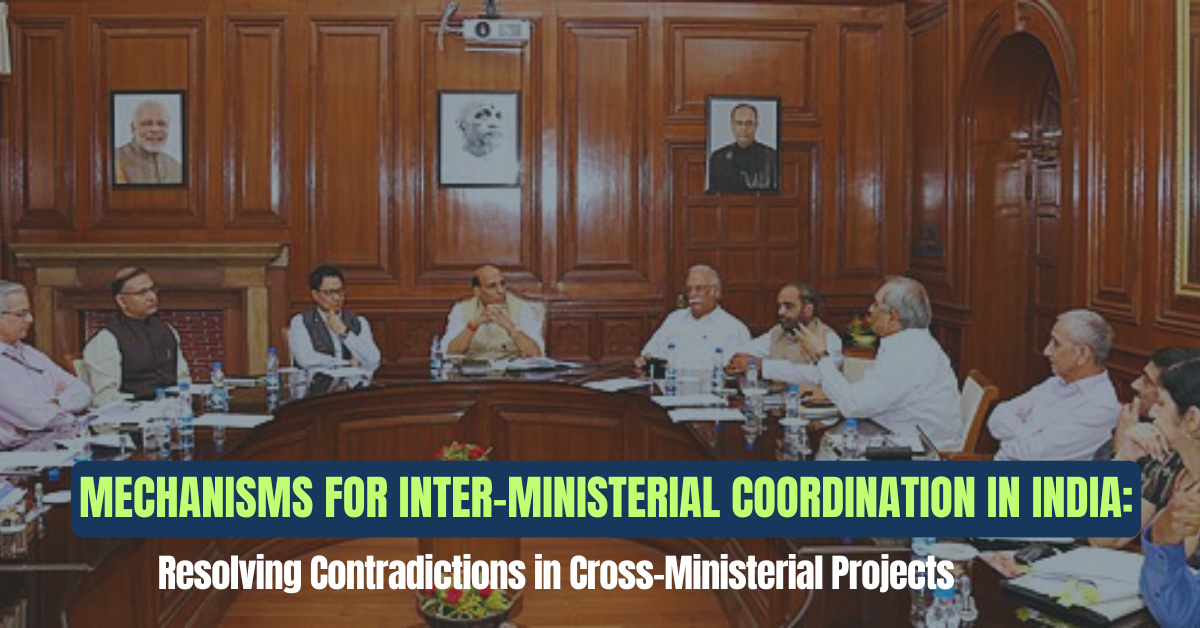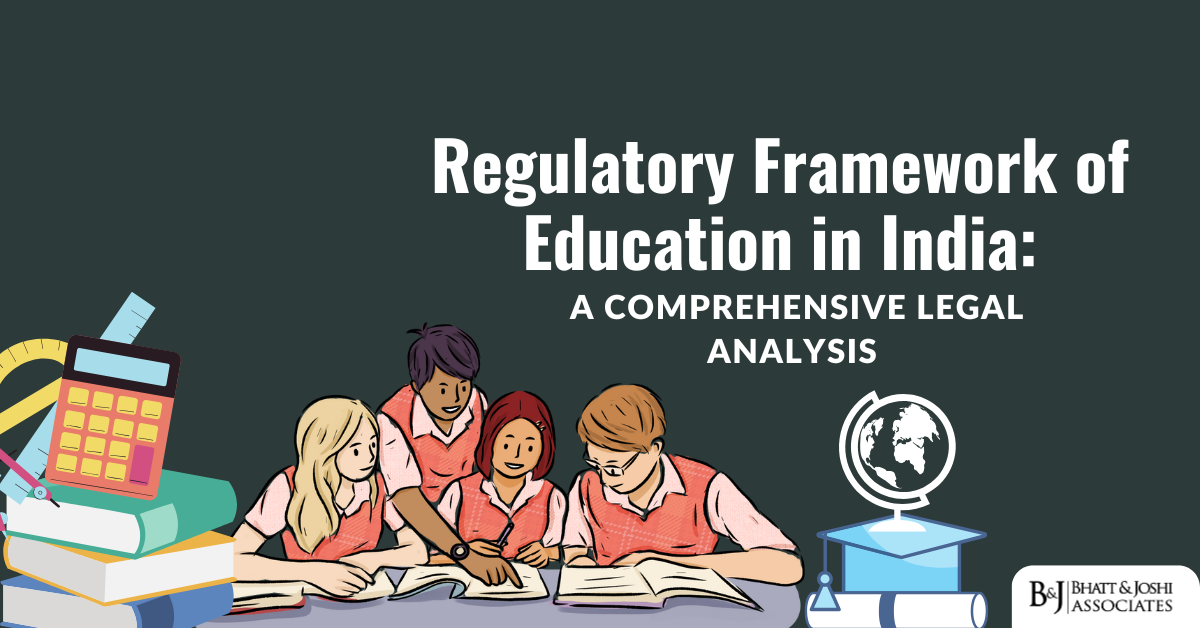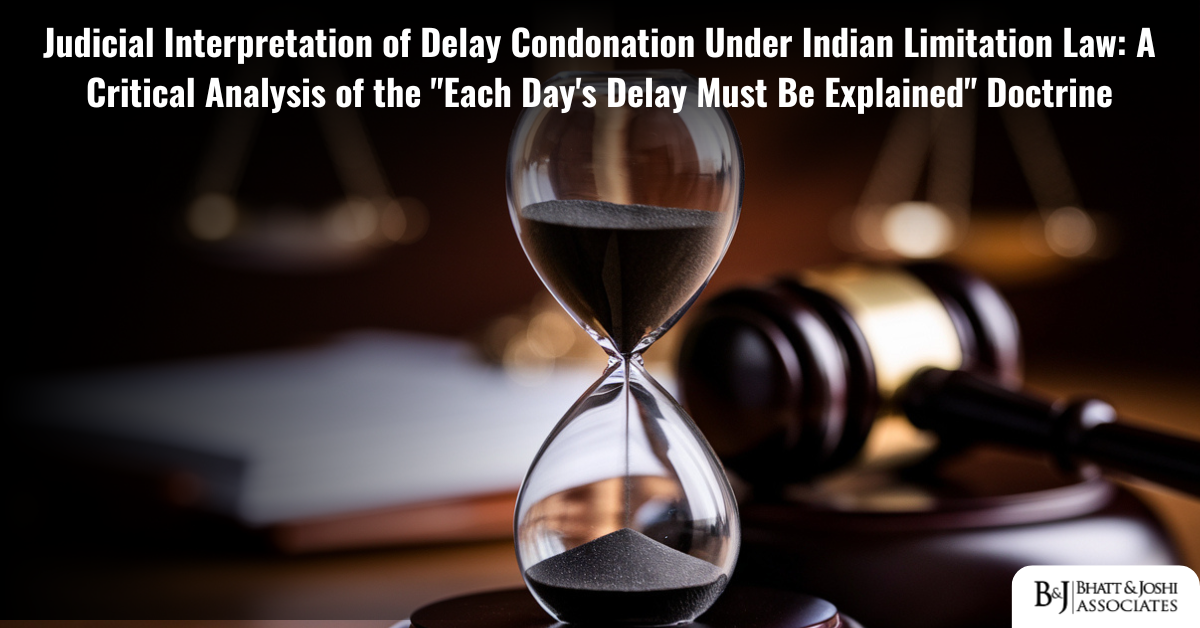Introduction: Setting the Context
The recent Supreme Court ruling dismissing Adani Power Ltd’s plea seeking payment of Rs. 1376.35 crores as an outstanding Late Payment Surcharge (LPS) from Jaipur Vidyut Vitran Nigam Limited (JVVNL) has ignited considerable legal discourse. This article aims to delve deeper into the intricate legal facets surrounding this case, providing a comprehensive analysis of the Supreme Court’s decision and its broader implications.
Background of Late Payment Surcharge in Adani Power vs. JVVNL Legal Dispute
The legal saga between Adani Power and JVVNL traces its origins back to a pivotal 2020 judgment by the Supreme Court. In this landmark ruling, the court upheld the decisions of the Rajasthan Electricity Regulatory Commission and the Appellate Tribunal for Electricity, affirming Adani Power’s entitlement to a compensatory tariff but denying it the Late Payment Surcharge (LPS). Dissatisfied with this outcome, Adani Power subsequently filed a Miscellaneous Application before the Supreme Court, seeking the LPS from JVVNL.
Legal Arguments Presented Before the Supreme Court Regarding Late Payment Surcharge
During the proceedings, Senior Advocate Dr. A.M. Singhvi, representing Adani Power, ardently argued in favor of the claim for LPS. He contended that the delay in receiving ‘change in law’ compensation, as mandated by the 2020 judgment, justified Adani Power’s demand for the surcharge. On the opposing front, Senior Advocate Dushyant Dave, assisted by Advocate Kartik Seth, represented JVVNL and vehemently opposed Adani Power’s claim. Mr. Dave raised objections to the procedural irregularities and accused Adani Power of abusing the legal process.
Supreme Court’s Decision: Analysis and Implications of the Late Payment Surcharge
In a significant ruling, the Supreme Court dismissed Adani Power’s application, citing procedural deficiencies and the inappropriate legal recourse adopted by the petitioner. The court emphasized that a miscellaneous application was not the proper legal avenue for claiming LPS and clarified that its earlier order did not confer any binding effect regarding the payment of LPS. Additionally, the court imposed a cost of Rs. 50,000/- on Adani Power, signaling its disapproval of frivolous litigation and abuse of legal process.
Understanding the Significance of Procedural Compliance
The dismissal of Adani Power’s plea underscores the critical importance of procedural compliance in legal proceedings. It reaffirms the fundamental principle that litigants must adhere to established legal norms and procedures when seeking remedies before the court. By upholding procedural integrity, the judiciary ensures fairness and equity in the resolution of disputes and maintains the sanctity of legal proceedings.
Judicial Precedents and Legal Principles
The Supreme Court’s decision in the Adani Power case aligns with established legal principles and judicial precedents. It underscores the judiciary’s commitment to curbing abuse of process and ensuring the efficient administration of justice. Through its ruling, the court sets a precedent for future cases involving similar claims for late payment surcharge, emphasizing the need for litigants to pursue legal remedies diligently and in accordance with established legal norms.
Implications for Corporate Entities and Public Utilities
The dismissal of Adani Power’s plea carries significant implications for corporate entities and public utilities embroiled in contractual disputes. It highlights the paramount importance of conducting thorough legal assessments and complying with contractual obligations in a timely manner. Corporate entities must exercise due diligence in their legal proceedings to avoid unnecessary costs and reputational damage, thereby fostering trust and reliability in the business environment.
Balancing Legal Rights and Public Interest
The Supreme Court’s decision reflects a delicate balance between protecting legal rights and safeguarding public interest. While upholding the rule of law and ensuring justice for all parties involved, the court also imposes costs on the petitioner to deter frivolous litigation and promote judicial efficiency. This balanced approach underscores the judiciary’s role in serving the interests of both litigants and the broader society, thereby fostering public confidence in the legal system.
The Role of Judicial Discretion
The exercise of judicial discretion plays a pivotal role in shaping the outcome of legal disputes. In the Adani Power case, the Supreme Court exercised its discretion judiciously by dismissing the petitioner’s application and imposing costs. Judicial discretion enables courts to uphold the principles of fairness, equity, and justice while considering the specific facts and circumstances of each case, thereby ensuring the effective and equitable administration of justice.
Conclusion: Upholding Legal Integrity and Fairness in Late Payment Surcharge Cases
In conclusion, the Supreme Court’s dismissal of Adani Power’s plea underscores the critical importance of upholding legal integrity and procedural fairness in the administration of justice. By adhering to established legal norms and principles, courts ensure the efficient resolution of disputes and maintain public trust in the judiciary. The Adani Power case serves as a poignant reminder for litigants to approach legal proceedings with diligence, transparency, and respect for procedural norms, thereby contributing to the effective functioning of the legal system and the broader goal of justice delivery.














